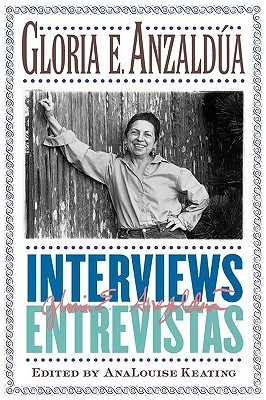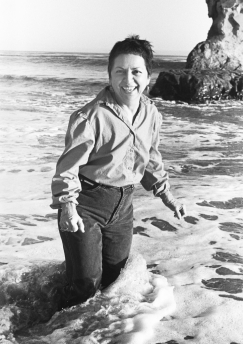
Gloria E. Anzaldúa, best known for her books Borderlands/La Frontera and This Bridge Called My Back, is one of the foremost feminist thinkers and activists of our time. As one of the first openly lesbian Chicana writers, Anzaldúa has played a major role in redefining queer, female, and Chicano/a identities, and in developing inclusionary movements for social justice. In this memoir-like collection, Anzaldúa's powerful voice speaks clearly and passionately. She recounts her life, explains many aspects of her thought, and explores the intersections between her writings and postcolonial theory. Each selection deepens our understanding of an important cultural theorist's lifework. The interviews contain clear explanations of Anzaldúa's original concept of the Borderlands and mestizaje and her subsequent revisions of these ideas; her use of the term New Tribalism as a disruptive category that redefines previous ethnocentric forms of nationalism; and what Anzaldúa calls conocimientos—alternate ways of knowing that synthesize reflection with action to create knowledge systems that challenge the status quo. Highly personal and always rich in insight, these interviews, arranged and introduced by AnaLouise Keating, will not only serve as an accessible introduction to Anzaldúa's groundbreaking body of work, but will also be of significant interest to those already well-versed in her thinking. For readers engaged in postcoloniality, feminist theory, ethnic studies, or queer identity, Interviews/Entrevistas will be a key contemporary document.
Author

Gloria E. Anzaldúa was a scholar of Chicana cultural theory, feminist theory, and queer theory. She loosely based her best-known book, Borderlands/La Frontera: The New Mestiza, on her life growing up on the Mexican-Texas border and incorporated her lifelong feelings of social and cultural marginalization into her work. When she was eleven, her family relocated to Hargill, Texas. Despite feeling discriminated against as a sixth-generation Tejana and as a female, and despite the death of her father from a car accident when she was fourteen, Anzaldúa still obtained her college education. In 1968, she received a B.A. in English, Art, and Secondary Education from Pan American University, and an M.A. in English and Education from the University of Texas at Austin. While in Austin, she joined politically active cultural poets and radical dramatists such as Ricardo Sanchez, and Hedwig Gorski. After obtaining a Bachelor of Arts in English from the then Pan American University (now University of Texas-Pan American), Anzaldúa worked as a preschool and special education teacher. In 1977, she moved to California, where she supported herself through her writing, lectures, and occasional teaching stints about feminism, Chicano studies, and creative writing at San Francisco State University, the University of California, Santa Cruz, and Florida Atlantic University, among other universities. (from Wikipedia) See also: https://tshaonline.org/handbook/onlin...